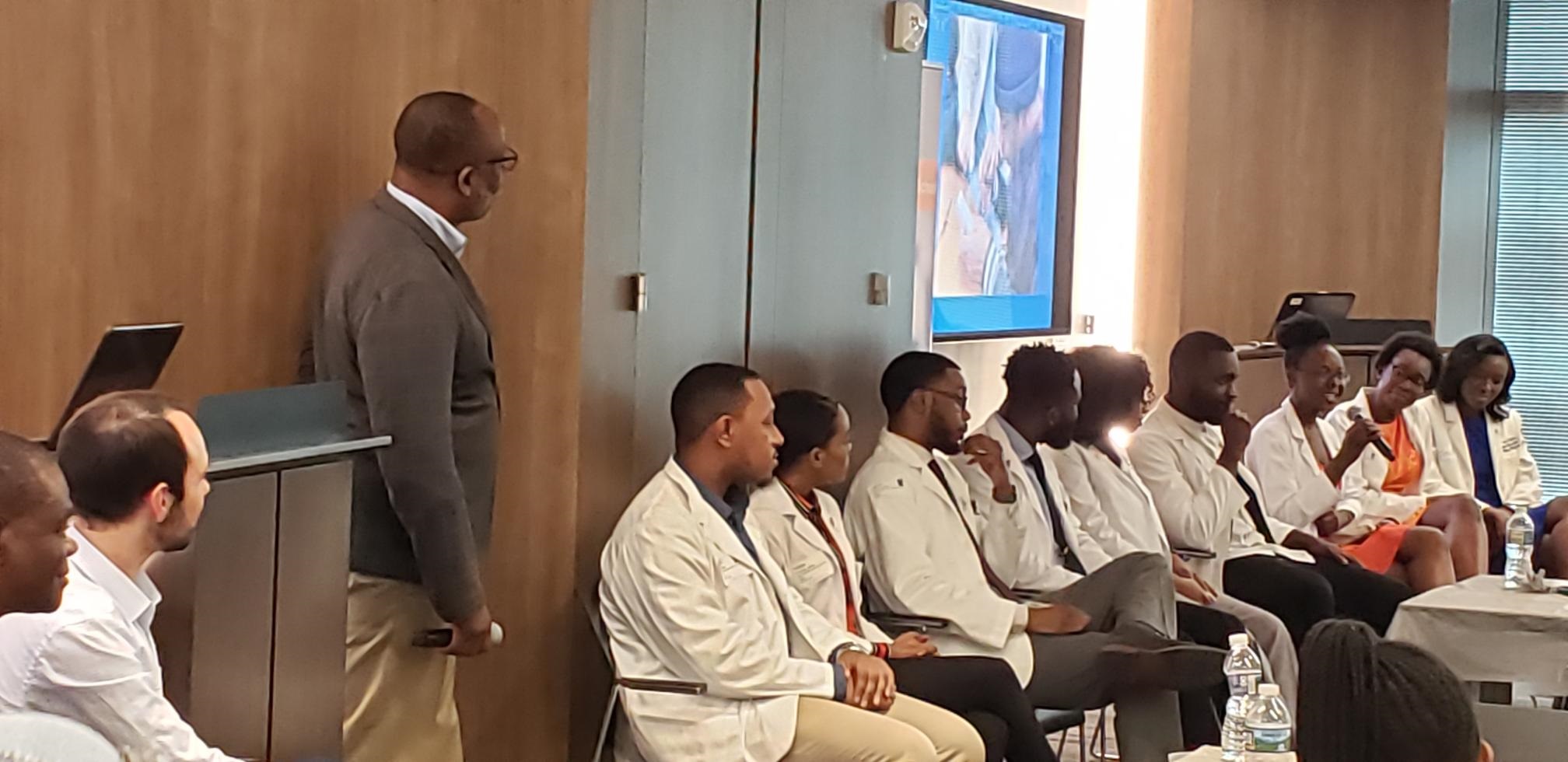Health Equity

News, Statements, and Testimony on Health Equity Issues
25th Council session information coming soon.
The Staggering State of Physician Wellbeing, Compensation, and Practice Realities
There is no debating the enormous value that highly trained physicians contribute to society. However, most physicians do not feel adequately valued for their contributions, according to two recent surveys by Medscape and Doximity.
Fewer than one-third of all physicians surveyed said they believe that their compensation matches the expertise and effort required by their role, according to the Doximity Physician Compensation Report 2024 (or the “2024 Doximity report”). Not only do female physicians feel undercompensated, but they also earn 23% less on average than their male counterparts according to the 2024 Doximity report.
The study did not provide state-level data, but MSDC’s Gender Equity Task Force is conducting a physician compensation survey to evaluate the gender pay gap in our nation’s capital and all physicians are encouraged to take part here.
The 2024 Doximity report suggests that more money isn’t the only solution. In fact, three in four physicians surveyed said that instead of negotiating a raise, they would accept, or already had accepted, lower pay for greater autonomy or work-life balance. Whereas 6 in 10 physicians were dissatisfied with their salary, even more (8 in 10) were dissatisfied with their workload and reported that they are overworked. This highlights the extreme toll that burnout and poor wellbeing pose to the physician workforce.
Burnout in healthcare is pervasive and well-documented, and led the U.S Department of Health & Human Services to issue an advisory stating, “The realities of our health care system are driving many health workers to burnout.” Among these realities are administrative burdens and paperwork, increased patient volume, physician shortages, excessive paperwork that gets done after hours during “pajama time”, prior authorization hurdles, and more. The impact is staggering and directly impacts society at large:
- More than nine in 10 physicians (95%) reported that prior authorization somewhat or significantly increases physician burnout
- Almost 90% of younger physicians report feeling overworked
- 88% of physicians say their clinic has been impacted by physician shortage
- 70% of physicians reported wanting to leave their employer or physician practice.
- An estimated one million Americans lose their physician to suicide each year
Fortunately, there are opportunities to ensure a healthy physician workforce. Individuals and organizations can support the Healthy Physician Foundation, established by MSDC to address burnout and support physician wellbeing, with a focus on Washington, D.C. On a broader scale, the Medscape Physician Compensation Report 2024 identified several strategies to alleviate the impact of a physician shortage and overall dissatisfaction.
- increase medical education funding to train more physicians
- implement loan forgiveness programs to incentivize work in underserved areas
- leverage AI and technologies to streamline administrative tasks
- eliminate barriers to side gigs
- preventive care programs to reduce the overall demand for care.
Physician wellbeing, compensation, and practice is critical to a sustainable health care workforce and a healthy population. MSDC is a vigorous ally for physician practice and wellbeing and for patient care in DC. Learn more at www.msdc.org.
Reminder: Take MSDC’s physician compensation survey if you are a physician in metropolitan Washington.
Sample of Health Equity Legislation MSDC Tracked
What does it say? The bill allows for the administration of medicinal marijuana in schools as well as allows students to bring sunscreen to schools and apply it without a prescription.
MSDC position: MSDC supports the language permitting sunscreen application in schools
Current status: A win for DC physicians and public health! The legislation passed the Council in February and was signed by the Mayor. Previous temporary and emergency legislation permitted students to use sunscreen at schools this school year already.
What does it say? The bill requires DC Health to establish an electronic Medical Order for Scope of Treatment registry (eMOST).
MSDC position: MSDC supports this legislation to more easily allow patients to make their treatment orders known.
Current status: A win for the physician community and our patients! The Council passed the bill in December and the Mayor signed it into law on January 16, 2020.
What does it say? The bill would implement a 1.5 cent per ounce tax on the distribution of "sugary" beverages. The money collected from the tax would establish a Healthy People, Healthy Places Open Spaces Grant Program.
MSDC position: MSDC sent a letter to Council Chair Mendelson asking for a hearing to discuss all of the issues around a beverage tax.
Current status: The bill was introduced October 8, 2019 and referred to the Committee on Business and Economic Development and the Committee of the Whole.
